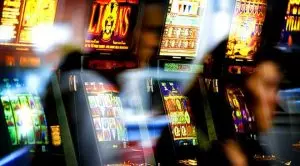 A report reflecting a massive increase in problem gambling in Australia’s Northern Territory has been made public following a change in the local Government’s previous refusals to publish it.
A report reflecting a massive increase in problem gambling in Australia’s Northern Territory has been made public following a change in the local Government’s previous refusals to publish it.
Menzies School of Health Research was entitled to conduct the Gambling Prevalence and Wellbeing Survey after receiving $695,000 from the Community Benefit Fund in late 2018.
A total of 5,000 adult NT residents participated in the survey by answering to more than 100 questions, with the final report saying the proportion of adults facing problem gambling behaviour increased by 50% from 0.7% in 2015 to 1.4% in 2018. This equals to around 2,500 adult people in the Northern Territory, who repeatedly spend more money than they can actually afford to, with many of them chasing losses or feel stressed about their gambling habits.
According to the report, a further 23,300 residents of the NT were considered to be exposed at moderate or low risk of getting addicted to gambling.
The report also says that the Northern Territory had the highest problem gambling, moderate- and low-risk problem gambling rates in comparison to the most recent estimates that had been provided by other jurisdictions in Australia.
The Menzies School of Health Research found that some demographics were at greater risk, with over 2.7% of male gamblers and 2.4% of unemployed gamblers being experiencing troubles to control their gamblers. The problem gambling rate was even higher for native NT gamblers – 5.3% that equates to around 1,500 people. The report states that the Aboriginal population in the Northern Territory is experiencing much more gambling-related harm than the non-Indigenous population of the state.
NT Government Admits the Report Has Been Significantly Delayed
 The report analysed all types of gambling available in the Northern Territory, including bingo, keno, lotteries, casino tables, poker machines, sports betting and racetrack betting. The electronic gaming machines (EMGs), also known as pokies or poker machines, were recognised as the most dangerous form of gambling, with more than half of the people who play them every week being classified as problem gamblers or being exposed to moderate risk of getting addicted to gambling.
The report analysed all types of gambling available in the Northern Territory, including bingo, keno, lotteries, casino tables, poker machines, sports betting and racetrack betting. The electronic gaming machines (EMGs), also known as pokies or poker machines, were recognised as the most dangerous form of gambling, with more than half of the people who play them every week being classified as problem gamblers or being exposed to moderate risk of getting addicted to gambling.
The final report, which was compiled late in 2019 before being reviewed by the Australian National University, was tabled to the Northern Territory Department of Attorney General and Justice in March 2020. Then in July 2020, it was sent to Natasha Fyles, the Minister for Racing, Gaming and Licensing.
Last month, a local media, ABC, lodged a Freedom-of-Information request to get access to the report, after in September the minister’s spokeswoman said that the report would be reviewed by the Government first. The request, however, got rejected in full because the report was exempt under the information act.
The report was finally provided to ABC yesterday, with Ms Fyles confessing that its public distribution took too much time. She further shared that she was working with her department in order to make sure it is published as soon as possible.
- Author


